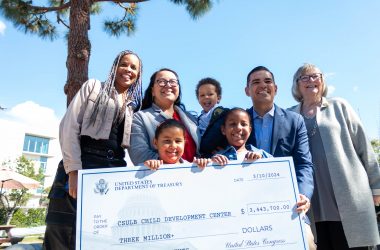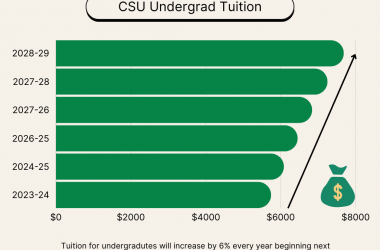Advocacy for a more transparent Cal State Long Beach presidential search is starting to catch fire with faculty members but remains out of touch with students.
During a second town hall-style forum held in the University Student Union Wednesday, speakers opened the discussion to a room full of faculty who wanted to voice their opinions on the impact of the presidential search on CSULB.
The forums have been organized by Brian Alan Lane and Micheal Pounds, professors in the film and electronics arts department, whose history with the university includes two joint 2011 lawsuits filed against the university and Cal State University system.
At the start of the forum, former Cal State University trustee Craig Smith gave a brief rundown of his own experiences with the CSU Board of Trustees. Smith, who is now a professor and chair of the film communications studies department and director of the Center for First Amendment Studies, also described how the policies have changed from a transparent presidential search to a more discreet one.
“I believe one of the most important things the Board does is to select the president for the campus,” Smith said. “It is very puzzling to me that there is a policy in place that allows the Board to protect the anonymity of a candidate.”
According to Smith, if CSULB was looking for a provost, dean or faculty member, the university would require that the candidates come to campus to interview with the Academic Senate in a public forum. However, in the search for president, the Board is allowing the candidates to decide whether they want to visit the campus or not.
“I find the policy very strange and very troubling,” Smith said. “I don’t know why we would suddenly exclude the presidential candidates from the process.”
Associate Dean for Accreditation and marketing professor Mary Celsi, who was initially going to apply for president, announced to the forum that she was no longer applying for the job. She instead spoke on why she thought transparency was important.
“When you hire a candidate through a secret search, that candidate often comes with the orientation to do backdoor politics,” Celsi said. “Based on personal experience, the result of this environment becomes unpredictable, unstable, and hard to work in … the result is stifling to faculty.”
The forum drew in more faculty than the first town hall, as many of the newcomers had recently learned about the forum’s push for transparency.
Deborah Hamm, a lecturer in the Department of Teacher Education and a faculty rights member for the teacher’s union, was one of the newcomers.
Hamm said she agrees with Celsi’s points about the environment and lack of representation in the presidential processes.
“I think the point is very true about the faculty voice, and the student voice seems to be squashed,” Hamm said. “I think the point they made about the faculty not being happy to be here anymore is very true. The atmosphere is not collegial, it’s not supportive, and people are being targeted if they disagree.”
By the end, the speakers all agreed that the turnout showed progress, but they still wanted students to be interested in the direction the campus will be taking with the search process.
“This is not what I was taught on how leadership works,” Celsi said. “I would like to see a president to come in the front door, not the back.”



